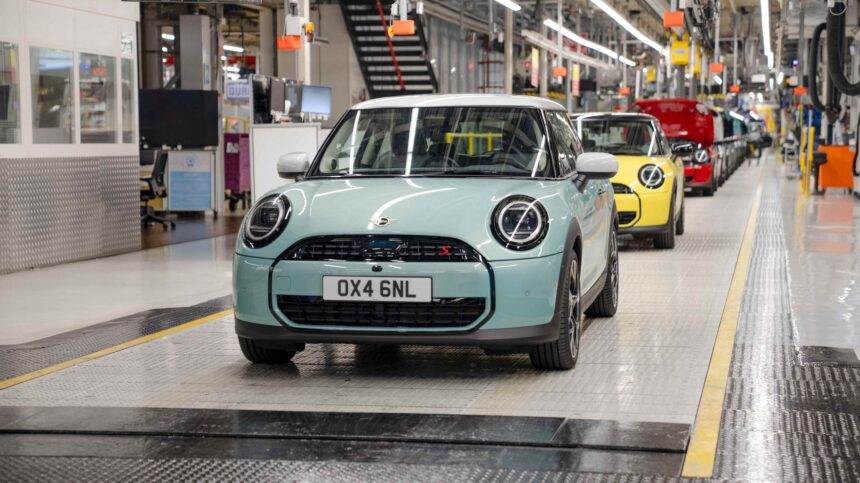The latest figures released by the Society of Motor Manufacturers and Traders (SMMT) reveal a decline of 11.6% in UK car and commercial vehicle production in February, totaling 82,178 units. This drop is attributed to various factors such as soft markets both domestically and internationally, model changeovers, and plant restructuring.
In February, car manufacturing saw a decline for the 12th consecutive month, down by 7.6% to 73,814 units. Despite this, export volumes increased by 1.3% to 60,034 units. However, car production for the UK market plummeted by 33.3% to 13,780 units.
Production of battery electric, plug-in hybrid, and hybrid cars also experienced a decrease of 5.6% to 27,398 units in the month. Despite the decline, these electrified cars slightly increased their share to 37.1% from 36.3% compared to the previous February. Year-to-date figures show a 39.6% share of production for electrified cars, indicating a rise from 36.0% a year ago.
On the commercial vehicle front, output fell significantly by 35.9% to 8,364 units, mainly due to decreased van production. Domestic demand led the way, accounting for 55.2% of output with volumes increasing by more than half to 4,621 units. However, CV exports dropped by 62.7% to 3,743 units, with 93.8% heading to the EU.
The SMMT emphasized the challenges faced by the automotive sector globally and called for urgent measures to enhance the UK’s competitiveness and stimulate consumer demand. The organization expressed disappointment in the lack of support for the industry or consumers in the recent Spring Statement by the UK Chancellor.
To address the industry’s concerns, the SMMT proposed canceling the VED Expensive Car Supplement for EVs, reducing VAT on public charging and new BEV sales, extending the Plug-in Truck Grant, and implementing mandatory targets for infrastructure rollout. These initiatives are aimed at supporting the industry’s investments in new factories, models, and discounts, and encouraging consumers and operators to transition to greener vehicles.
SMMT Chief Executive, Mike Hawes, highlighted the need for regulatory easements to ensure the industry’s viability and facilitate the UK’s transition to zero-emission mobility. Without supportive policies, manufacturing viability remains at risk, and the country’s shift towards sustainable transportation is jeopardized.







